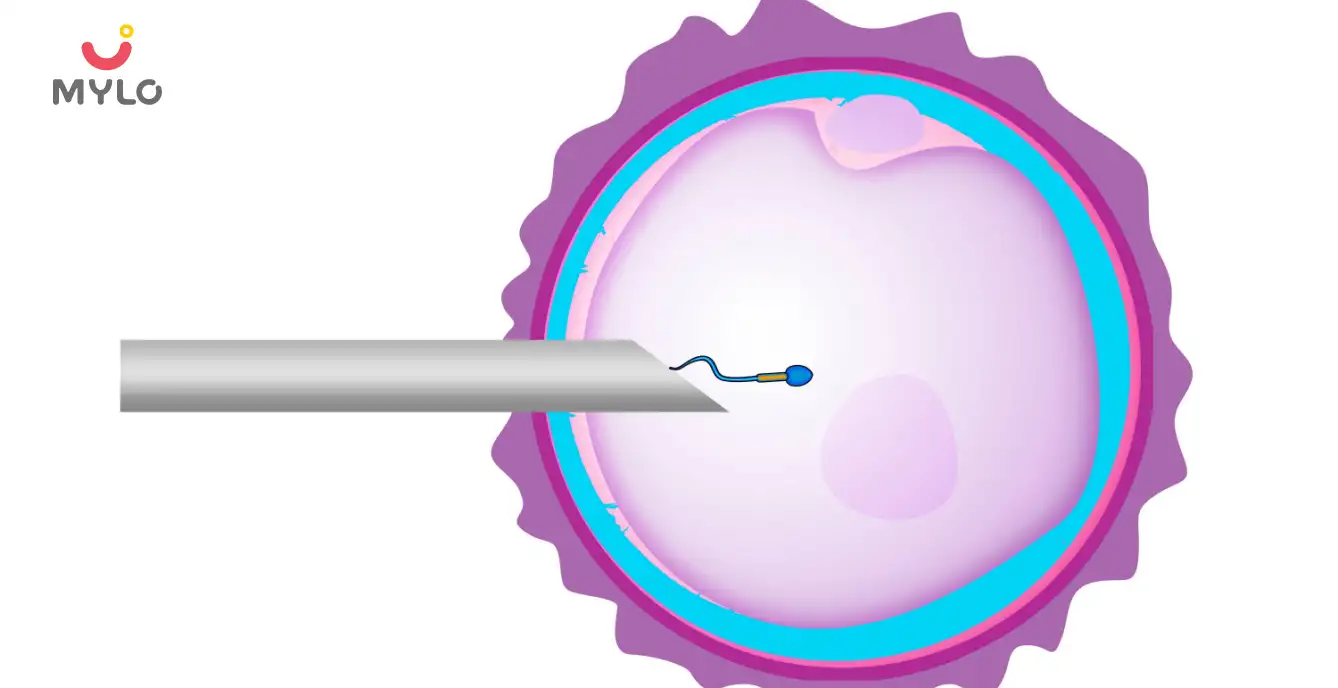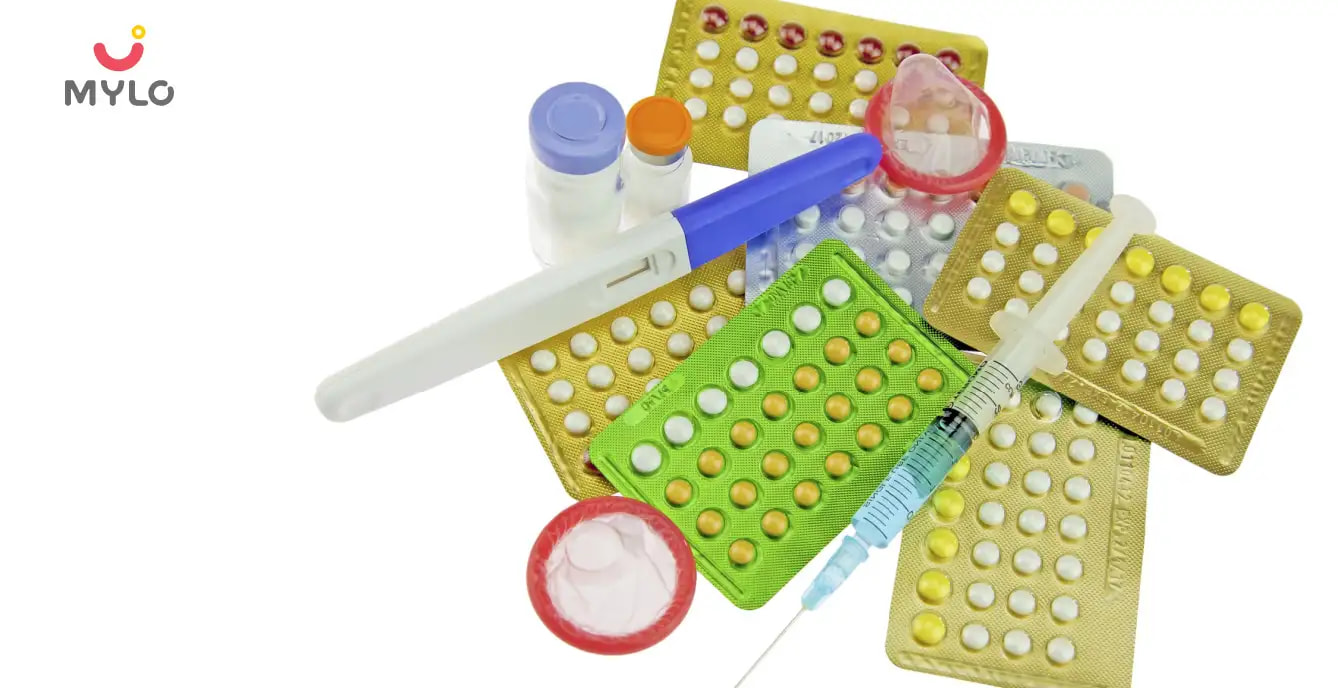- Home

- Contraceptive

- Birth Control Options While Breastfeeding: Balancing Parenthood and Contraception
In this Article
Contraceptive
Birth Control Options While Breastfeeding: Balancing Parenthood and Contraception
Updated on 14 July 2023
Parenthood comes with its fair share of challenges and adjustments, and one important aspect to consider is contraception while breastfeeding. Yes, we're talking about the delicate balance of parenthood and birth control options while breastfeeding. As you navigate the sleepless nights, diaper changes, and feeding schedules, it's crucial to have a reliable method of contraception that is safe for both you and your baby.
In this article, we'll dive into the world of contraception while breastfeeding, exploring the various options available to you, their pros and cons, and what you need to consider when choosing the ideal contraceptive for lactating mothers. So, grab a cup of coffee (or a glass of water, if you're breastfeeding!), and let's embark on this journey together, finding that perfect balance between parenthood and contraception.
Is it necessary to use birth control options while breastfeeding?
Breastfeeding is a beautiful and natural way to nourish your baby while also providing numerous health benefits for both mother and child. However, many new mothers wonder if it is necessary to use birth control while breastfeeding. The answer to this question depends on your personal circumstances and future family planning goals.
While breastfeeding can provide some level of natural contraception, it is not foolproof. The lactational amenorrhea method (LAM) is the natural suppression of ovulation due to breastfeeding, but it is only effective if certain criteria are met. These criteria include exclusively breastfeeding your baby, breastfeeding on demand day and night, and not supplementing with formula or solid foods.
Additionally, LAM is only effective for the first six months postpartum. If any of these criteria are not met, it is important to consider using birth control to prevent an unplanned pregnancy.
Which factors to consider while choosing birth control pills while breastfeeding?
When choosing birth control options while breastfeeding, it is important to consider several factors. Firstly, you should consult with your healthcare provider to discuss your specific needs and medical history. They can help you determine which options are safe and suitable for you.
Secondly, consider the effectiveness and convenience of the method. Some birth control options require daily adherence, while others offer long-term protection with minimal effort.
Lastly, consider any potential side effects or risks associated with the method, especially if you are breastfeeding.
You may like also : Unexpected Pregnancy While Breastfeeding: What to Expect and Next Steps
What is the ideal contraceptive for lactating mothers?
Let us now understand the various contraceptive options available to a breastfeeding mother:
1. Contraceptive pills
There is a long list of contraceptive pills for breastfeeding moms. These pills contain a combination of estrogen and progestin or progestin-only, and they work by preventing ovulation and thickening cervical mucus. It is important to consult with your healthcare provider to determine the most appropriate birth control pills while breastfeeding.
2. Non-hormonal birth control options
If you prefer to avoid hormonal methods while breastfeeding, there are non-hormonal birth control options available. Barrier methods such as condoms, diaphragms, and cervical caps can be used effectively to prevent pregnancy. Additionally, copper intrauterine devices (IUDs) are a long-lasting and highly effective non-hormonal option. These devices work by creating an inhospitable environment for sperm and preventing fertilization.
3. Natural family planning methods
Some breastfeeding mothers opt for natural family planning methods, also known as fertility awareness-based methods. These methods involve tracking and monitoring your menstrual cycle to identify fertile and infertile days. By avoiding intercourse on fertile days, you can prevent pregnancy. However, it is important to note that these methods require careful tracking and adherence to be effective. They may not be suitable for everyone, especially if your menstrual cycle has not yet returned to regularity.
4. Long-acting reversible contraception (LARC)
Long-acting reversible contraception methods, such as hormonal IUDs and contraceptive implants, offer highly effective and long-lasting protection against pregnancy. These methods are particularly convenient for breastfeeding mothers as they require minimal effort once inserted. Hormonal IUDs release progestin locally and do not affect breast milk supply. Contraceptive implants, which are inserted under the skin of the upper arm, also do not interfere with breastfeeding.
You may also like : How to Avoid Pregnancy Naturally After Sex?
Does birth control affect breast milk supply?
Many breastfeeding mothers worry that using birth control pills while breastfeeding may negatively impact their breast milk supply. However, the majority of birth control options do not have a significant impact on milk production.
Contraceptive pills, including progestin-only pills, do not affect milk supply. Similarly, non-hormonal methods such as condoms and copper IUDs do not interfere with milk production. It is important to discuss any concerns with your healthcare provider to ensure you choose a method that is safe and suitable for breastfeeding.
How can I prevent pregnancy while breastfeeding?
To prevent pregnancy while breastfeeding, it is important to choose a reliable birth control method and use it consistently and correctly. If you are exclusively breastfeeding and meet the criteria for LAM, you may be able to rely on this method for the first six months postpartum.
However, if any criteria are not met or if you wish to have additional protection, consider using a complementary birth control method. Discuss your options with your healthcare provider to find the most suitable method for you.
When can I start birth control after giving birth?
The timing of starting birth control after giving birth depends on various factors, including whether you are breastfeeding or not. If you are exclusively breastfeeding and rely on LAM as your primary method, it is important to start using an additional form of birth control once any of the LAM criteria are no longer met. If you are not breastfeeding or using LAM, you can start using birth control immediately after giving birth, as recommended by your healthcare provider. They will guide you on the most appropriate time to start based on your individual circumstances.
The Bottomline
Choosing the right birth control options while breastfeeding can be a personal decision that requires careful consideration of your needs, lifestyle, and medical history. It is important to consult with your healthcare provider to discuss your options and find a method that is safe, effective, and suitable for breastfeeding. Remember that breastfeeding alone is not a foolproof method of contraception, and using a reliable birth control method is essential to prevent an unplanned pregnancy.
References
1. Pearlman Shapiro M, Avila K, Levi EE. (2022). Breastfeeding and contraception counseling: a qualitative study. BMC Pregnancy Childbirth.
2. Pieh Holder KL. (2015). Contraception and Breastfeeding. Clin Obstet Gynecol.



Written by
Anandita Sharma
Drawing on more than a decade of expertise in administration, Anandita Sharma currently serves as a content operations e
Read MoreGet baby's diet chart, and growth tips

Related Articles
How Respiratory Syncytial Virus (RSV) Impacts Premature Babies Differently: What Every Parent Needs To Know
Adverbs: A Comprehensive Guide to help small children learn the usage of adverbs
Expand Your Child's Vocabulary with words that start with X: Easy, Positive, and Engaging Words, Animals, Countries, and Fruits
Unlocking Language Proficiency: The Ultimate Guide to Top 100 Sight Words for Kindergarten and Beyond
Related Questions
Hello frnds..still no pain...doctor said head fix nhi hua hai..bt vagina me pain hai aur back pain bhi... anyone having same issues??

Kon kon c chije aisi hai jo pregnancy mei gas acidity jalan karti hain... Koi btayega plz bcz mujhe aksar khane ke baad hi samagh aata hai ki is chij se gas acidity jalan ho gyi hai. Please share your knowledge

I am 13 week pregnancy. Anyone having Storione-xt tablet. It better to have morning or night ???

Hlo to be moms....i hv a query...in my 9.5 wk i feel body joint pain like in ankle, knee, wrist, shoulder, toes....pain intensity is high...i cnt sleep....what should i do pls help....cn i cosult my doc.

Influenza and boostrix injection kisiko laga hai kya 8 month pregnancy me and q lagta hai ye plz reply me

RECENTLY PUBLISHED ARTICLES
our most recent articles

Periods
Period During Breastfeeding What Every New Mother Should Know

Brain Development
Role of Stories and Rhymes in Your Baby’s Brain Development

Male Infertility
Intracytoplasmic Sperm Injection (ICSI) How It Can Help Treat Male Infertility

Breastfeeding & Lactation
Baby Sleeping While Breastfeeding: Understanding the Causes and Solutions

Breast Lump
Lump in Breast During Breastfeeding How to Identify, Treat, and Prevent Lump Formation

Developmental Disorders
Understanding Down Syndrome: A Comprehensive Guide for Parents
- No Breast Milk After Delivery: What to Do & What are the Factors Responsible
- Lactation Failure: A Comprehensive Guide to Understanding the Causes and Solutions
- Breast Pain During Pregnancy: What to Expect and How to Find Relief
- Baby Spit Up: The Ultimate Guide to Causes, Prevention, and Management
- Unexplained Infertility: Breaking Down the Factors and Finding Solutions
- Mulethi: Unraveling the Therapeutic Potential of Licorice Root for Your Overall Health
- 5 Steps to a Healthy Lifestyle: The Blueprint for Your Wellness Journey
- Chandraprabha Vati: How This Potent Ayurvedic Formulation Can Boost Your Health
- Trichomoniasis: Meaning, Symptoms, Causes and Risks
- Gallstones in Pregnancy: Symptoms, Complications & Treatment
- Fertility Massage: A Holistic Approach to Boosting Fertility Your Chances of Conception
- Baby Vomiting After Feeding: Understanding the Causes and Solutions for Upset Stomach
- Why do you need to wear a high waisted panty during pregnancy?
- Top 5 Precautions You Should Take After Getting an IVF Treatment


AWARDS AND RECOGNITION
Mylo wins Forbes D2C Disruptor award
Mylo wins The Economic Times Promising Brands 2022
AS SEEN IN
















At Mylo, we help young parents raise happy and healthy families with our innovative new-age solutions:
- Mylo Care: Effective and science-backed personal care and wellness solutions for a joyful you.
- Mylo Baby: Science-backed, gentle and effective personal care & hygiene range for your little one.
- Mylo Community: Trusted and empathetic community of 10mn+ parents and experts.
Product Categories
baby carrier | baby soap | baby wipes | stretch marks cream | baby cream | baby shampoo | baby massage oil | baby hair oil | stretch marks oil | baby body wash | baby powder | baby lotion | diaper rash cream | newborn diapers | teether | baby kajal | baby diapers | cloth diapers |





